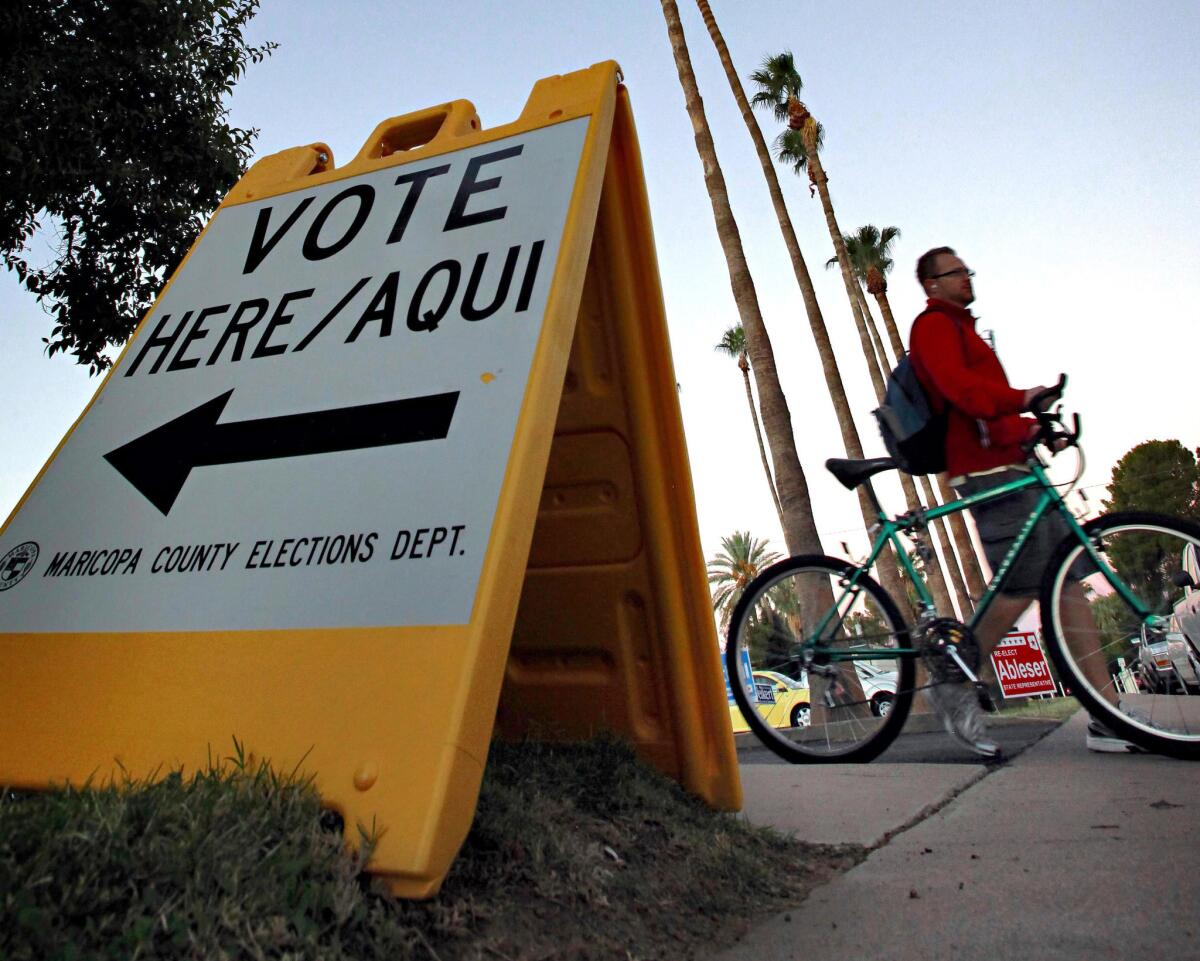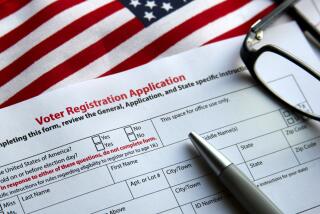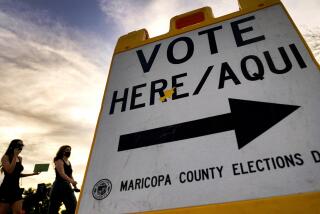Making Arizona voting fairer

On Monday, the U.S. Supreme Court struck down Arizona’s misguided effort to set its own voter registration requirements for federal elections. In so doing, the high court recognized that it is Congress, and not individual states, that has the final say over federal election rules.
Congress enacted the National Voter Registration Act of 1993 in the hopes of encouraging greater participation in the political system and creating a simplified, uniform registration system for federal elections. Under the law, also known as the Motor Voter Act, citizens can register to vote when applying for driver’s license or by mailing in a relatively straightforward form to state officials, on which the applicant states, under penalty of perjury, that he or she is a U.S. citizen.
But the goals of simplification and participation were undermined by Arizona’s Proposition 200. Passed in 2004, the law placed additional requirements on would-be voters that went beyond what Congress called for in the 1993 law. Among other things, the state statute required individuals to provide proof of citizenship when they registered to vote. And it required state officials to reject any voter registration forms that arrived by mail unless they also complied with Prop. 200 standards.
VIDEO: Historic ruling set in affirmative action case
Arizona argued that the law was needed to prevent voter fraud by immigrants who don’t qualify to vote. and that it was not pre-empted by federal rules because it was consistent with Congress’ intent of protecting the integrity of elections.
Such arguments are unpersuasive. As the U.S. 9th Circuit Court of Appeals noted, Arizona failed to provide any real evidence that voter fraud is a significant problem in the state. Moreover, while it is true that states have the authority to set the “times, places and manner” of federal elections, the U.S. Constitution clearly provides Congress with the authority to alter those regulations. And that is precisely what federal lawmakers did when they passed the 1993 act in an effort to clear up the maze of state laws that had dissuaded many citizens from registering up until that time.
Arizona’s law, meanwhile, had the opposite effect. Just how many people were discouraged from voting is unclear. The Mexican American Legal Defense and Education Fund concluded that more than 31,000 people were kept from registering, many of them Latinos and naturalized citizens such as Jesus Gonzalez, a Catholic school janitor from Yuma who was the lead plaintiff in the case. Gonzalez attempted to register to vote twice — on the day he became a naturalized U.S. citizen and again on the day he received his driver’s license. But although he was eligible to vote, he was turned away because he did not have the proper documents.
The Supreme Court’s decision should make clear to Arizona that it may not bend the federal voting registration act in its ongoing zeal to punish immigrants.
More to Read
A cure for the common opinion
Get thought-provoking perspectives with our weekly newsletter.
You may occasionally receive promotional content from the Los Angeles Times.










